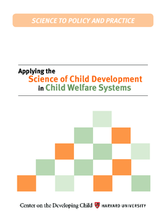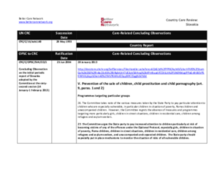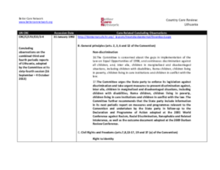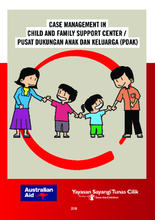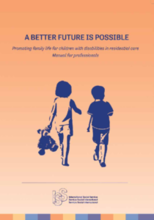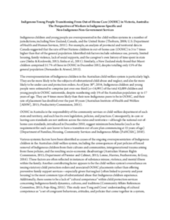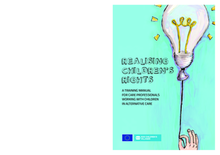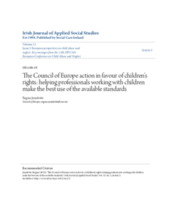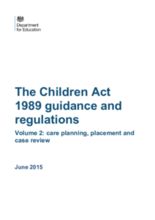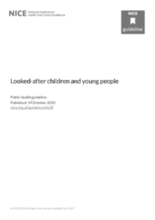Displaying 101 - 110 of 372
This paper explores the ways that developmental science can inform and strengthen the child welfare system to better support the children, families, and communities it serves.
This country care review includes the care-related Concluding Observations adopted by the Committee on the Rights of the Child and the Committee on the Rights of Persons with Disabilities.
This country care review includes the Concluding Observations for the Committee on the Rights of the Child and the Committee on the Rights of Persons with Disabilities.
This book introduces the PDAK – Pusat Dukungan Anak dan Keluarga (Child and Family Support Centre) in Indonesia and the case management system utilized within the centre.
This manual provides guidance to professionals who work with children with disabilities in residential care.
This article investigates the current leaving care and post-care supports that are available to Indigenous care leavers in Australia.
The two-day course outlined in these pages is designed to familiarise groups of care professionals with the international standards and principles surrounding children’s rights – and above all, to relate this to the daily experience and challenges arising in the field of alternative care.
This article describes the current strategies of the “Building a Europe for and with Children” programme, a programme of the Council of Europe. The strategy focuses on four areas of action: promoting child-friendly services and systems; eliminating all forms of violence against children; guaranteeing the rights of children in vulnerable situations, and promoting child participation. A further standard is available on children’s rights and social services friendly to children and families for ensuring that children lacking or placed outside parental care are given adequate treatment.
Volume 2 of the Children Act 1989 Guidance and Regulations provides guidance, primarily addressed to local authorities and their staff in England, about their functions under Part 3 of the Children Act 1989 which concerns the provision of local authority support for children and families. In particular it describes how local authorities should carry out their responsibilities in relation to care planning, placement and case review for looked after children.
This guideline covers how organisations, professionals and carers can work together to deliver high quality care, stable placements and nurturing relationships for looked-after children and young people in England.

